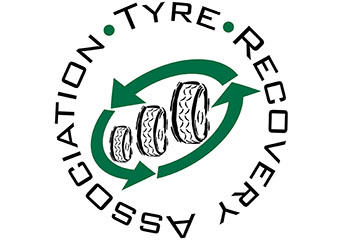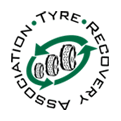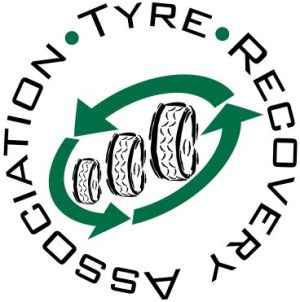Press Release - TRA welcomes changes to export rules – 07 October 2025

Regulation and Responsibility
Britain’s tyre recyclers and retreaders are threatened with draconian new storage regulations which could put many out of business. The TRA is pleading for a more proportionate approach.
Since 2006 Britain’s tyre industry has faced a near 100% reuse or recovery obligation. Far greater than that of other ‘low risk’ waste streams. That we have consistently achieved this for more than a decade now and might – if we had one – blow the industry’s trumpet. That we have achieved this through a purely voluntary and market-based approach to tyre recycling is also something to be quietly proud of despite the many challenges we face from rogue operators, a weak enforcement regime and an often less than supportive executive is surely a story worth airing, so how did we do it?
Well, first of all, a decade and a half ago, we set up a voluntary best practice scheme we called ‘Responsible Recycler’. All our loyal TRA members are part of this and are routinely audited at their own expense. This scheme ensures that they are site and operationally competent in all relevant matters, providing arisings data for our annually recovered tonnages and full traceability. With the support of responsible retailers large and small we account for well over two-thirds of our 550,000 tonne annual arisings. It could and should be an even bigger slice but I will come to that.
As an association, we do not rest on our laurels but always strive to do more to improve the professionalism and competitiveness of our members. We worked hard on developing a PAS standard for tyre-derived materials, last year instituted a QP now much admired by some on the near continent and have recently launched an audit-based protocol for the assessment and re-validation of part-worn tyres which our retailers, vehicle dismantlers and others are keen to adopt. We could and would like to do more but without the coherent support of our regulators, this will be impossible and herein lies an issue. I believe others also struggle to deal with inappropriate and unaffordable regulations and apparent lack of ultimate accountability.
The on-going furore over fires at waste sites is what severely impacts on my own sector as well as others is a clear case in point. After years of inconclusive discussion with the Environment Agency, the concerns and arguments put forward by the mainstream tyre recyclers have been totally set aside in favour of a one size fits all framework which will not work at all. The consequences are all too easy to predict as site capacities will be reduced by up to 50% and the economics of their operation totally compromised. This ill-judged attempt at regulation means that operators will be forced out of business, jobs lost and responsible tyre recycling decimated. Like many waste streams, ours is not highly profitable and the resources needed to decamp elsewhere are simply not available. The inevitable consequence will be to push tyre recycling even more to the unregulated margins and so increase the likelihood of the very event this new regulatory ‘guidance’ is intended to alleviate. The illogicality of it is dispiriting.
Yes, we do as businesses want to do all we can to reduce risk but fires can start as a result of a number of factors not least of which is arson; reducing stack heights to tiny piles is not the answer but that’s where the emphasis is, not on site security and early detection. Furthermore, fire science itself hardly supports the new operational norms. Contrary to a deep seated belief within the EA and HSE, neither whole tyres nor shred self-combust unless contaminated. The jury is out on exothermic combustion in tyre rubber crumb and granulate and as work by the FRS is ongoing; it remains the case however that examples of the ‘phenomena’ are hard to find here in the UK. Most galling of all is that our industry’s real problems, sham recycling, a developing over-reliance on the export of waste both legal and illegal coupled with a poor history of effective enforcement are issues that the EA in particular find hard to confront. Not surprising then that most responsibly-minded operators feel persecuted by such an unjust regulatory regime. So where does the blame lie?
As we retreat further from the proximity principle and from the waste hierarchy we cannot completely absolve our own industry of blame but economics are economics and while rogue and non-compliant operators are allowed to flourish virtually unmolested the responsible retreat. Here I would actually argue for more regulation if it were constructive. A couple of easy examples would be the ending of exemptions and ‘tyre-specific’ permitting for collectors. To its credit SEPA is withdrawing exemptions for most types of tyre storage so it is possible.
Most of all, what we desperately need is a level playing field in England and Wales. Those who operate below the radar need to be exposed and put out of business because only in this way will market economics strengthen to the point where mainstream operators can sustain a reasonable hike in the regulatory burden but we are still a long way from that rainbow end. As a recent analysis graphically demonstrated, the operating costs of a responsible operator are almost three times those of say a covert baler operating from an exempt site! This is an unconscionable state of affairs.
Reluctantly I have come to conclude that the responsibility for allowing this situation to arise and then doing too little to face up to it despite endless lobbying must lie with government even though I would accept they have often been denied the resources necessary to properly meet their statutory obligations. The EA freely admits it has not effectively policed exempt operators because it had no revenue stream to support such activity and this I think takes us to the core of the matter. When pushed to do something yet more regulation is always the easy route however disingenuous. The ‘one size fits all’ approach, that announcement of yet another ‘new’ initiative are the let out for embattled officials. There are few prizes for lateral thinking or waste-stream specific programmes which build an ever closer co-operation between regulator and regulated, which I would endorse- Remember ‘earned responsibility’?
Officials too need to be closer to those they regulate for only in this way can effective progress be made. Understanding the art of the possible is not best achieved in the burrows of Smith Square or thereabouts.
We badly need a new business-facing approach so can I plead for more constructive and less destructive engagement? I and many others would, be delighted to assist if only we could escape the sterility of an approach which favours ‘form’ over real substance. Industry deserves it and those who ordain over us owe it to themselves I believe. Life outside the box is not threatening but empowering. This may even be just the right moment, Defra has a newly-appointed Secretary of State, the EA a recently appointed new Chief Executive and we must face up to a post Brexit world where things will need to be done differently.
For those of us at the sharp end I can only say that it would be a real joy to feel that we were contributing to the success of our industries and not endlessly attempting to argue the latest ill-thought through and damaging initiative.
Peter Taylor OBE, Secretary General, TRA

